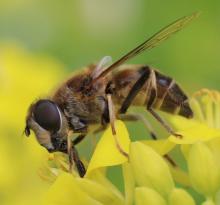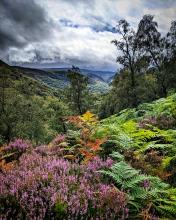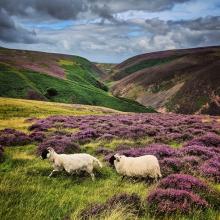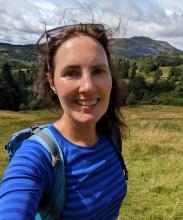The most pressing societal challenges of the first half of the 21st century, including climate change, the biodiversity crisis and building a restorative economy, are systems challenges. To solve them requires understanding and quantification of how key systems respond to both global change and local responses.
We are therefore developing tools for efficient computation at scale, estimation of large scale and systems model parameters, and the analysis of multiple models to test understanding and enable proper quantification of uncertainty. Here we describe the Scottish Government RESAS funded, Large Scale and Systems Modelling project led by Biomathematics & Statistics Scotland to address these challenges. Consistent with the Scottish Government's commitment to Open Science we place openness, transparency and research integrity at the heart of our work.
1. Tools for Large Scale and Systems Modelling
1.1 Inference for large scale stochastic process models
Efficient computational tools are being developed to allow Bayesian inference for increasingly complex models. This will enhance scientific understanding by
(i) estimating quantities impractical or too costly to measure directly; and
(ii) by enabling data driven assessment of alternative hypotheses about how systems work via model comparison

1.2 Statistical methods for complex simulation models
Developing uncertainty quantification workflows improves reproducibility and transparency by investigating four components:
- systematic sensitivity analysis methodologies
- different model fitting procedures, e.g. calibration and history matching
- propagation of uncertainties through to model application
- development of emulators to approximate computationally expensive models
1.3 Data integration methods for soil monitoring
Exploring potential approaches to integrate the wealth of Scottish soil monitoring data from different spatial scales and data collection programs (e.g. systematic surveys compared with citizen science data ) into ecological models.

1.4 Large scale modelling for biodiversity & landscape management
Building on an existing species level ecosystem model we are creating tools to understand and predict the key drivers of biodiversity in Scotland. This involves combining land use models with dynamic vegetation models to investigate the effects of land management strategies and decision making behaviour on biodiversity response under climate change.
2. Sectoral Modelling and Dynamics of Social Systems
2.1 Causal inference for circular economy data
A circular economy is a model of society in which the life cycle of existing materials is extended as much as possible, leading to minimum waste. We are developing causal inference methodologies which focus on understanding effects of potential interventions and policy scenarios in facilitating behaviour changes that accelerate green recovery towards a circular economy.
This aims to enable design and evaluation of the feasibility of potential circular economy interventions by developing causal inference models from primary and secondary data and agent-based models.

2.2 The dynamics of antimicrobial resistance
Building on established mathematical theory of infectious disease, we are developing novel modelling approaches to the challenge of understanding the dynamics of antimicrobial resistance. This is part of a wider multi disciplinary challenge to manage resistance in agricultural systems.
2.3 Dynamic networks, behaviour and socio-economics
To design improved disease control we have developed novel generative models of livestock movements at national scale. We are using these to develop a digital twin of the Scottish cattle trade system and exploring: (i) potential disease control benefits of modifying how the trade needs of farms are met; (ii) interaction of trade with standard control measures; and (iii) how novel controls could be included in cattle health schemes.
BioSS contacts:

Helen Kettle

Glenn Marion
This work is in collaboration with SEFARI, The James Hutton Institute, The Moredun Institute, The Royal Botanic Garden Edinburgh, Scotland's Rural College, and The Rowett Institute.
Scottish Government’s Rural and Environment Science and Analytical Services Division RESAS (BioSS-3-LSM)
